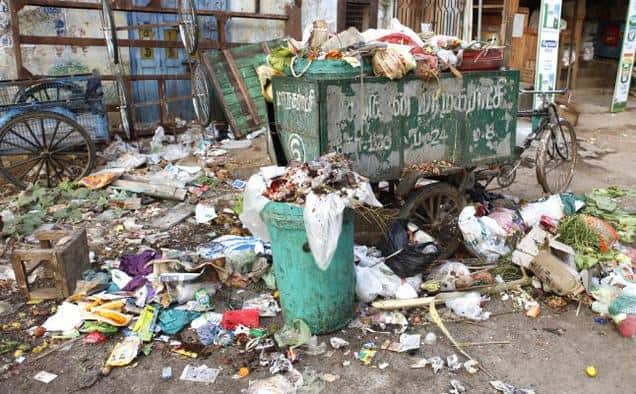Private operators to ply 500 buses in Chennai
For the first time in its history, the Metropolitan Transport Corporation (MTC) has approved the Gross Cost Contract/Public-Private Partnership model to rope in private operators to own and ply private buses in Chennai. A tender has been floated by the MTC in this regard.
While the MTC operates as many as 3,400 buses catering to 29.5 lakh passengers every day, the Chennai Sustainable Urban Services Programme (C-SUSP), the World Bank-funded Chennai City Partnership (CCC), as part of which the MTC has adopted the new model, aims to increase the number of buses to 4,700.
Accordingly, 1,000 buses will be operated by private operators in Chennai, of which 500 will begin operations in 2023, while the other 500 are likely to be operated from 2025.
Notably, the MTC employees union has opposed the move to privatize the public transport system.
Source: The Times of India
Chennai to get three new bridges
In a bid to address the traffic woes, the Greater Chennai Corporation (GCC) is set to construct three new bridges in Tondiarpet, Kodambakkam, and Thiru Vi Ka Nagar respectively at a total cost of Rs 369 crore.
The foundation stones for the new bridges were laid on March 8. The work is expected to be completed in two years.
The bridge in Kodambakkam, which will be 1.2 kilometres long and 8.4 metres wide, will connect North Usman road and CIT Nagar.
A Road over Bridge (RoB) that will come up over the Ganeshapuram subway in Tondiarpet and Thiru Vi Ka Nagar zones will be 678 metres long and 15.2 metres wide.
The bridge on Manali road in the Tondiarpet zone will have a length of 840 metres and a width of 8.4 metres.
Source: The New Indian Express
Read more: Citizen’s audit highlights issues with flyovers and underpasses in North Chennai
GCC levies fine under litter-free corridor scheme
As part of phase one of the litter-free corridor scheme, the Greater Chennai Corporation (GCC) has selected 18 roads from all 15 zones that stretch for 66 kilometres. The scheme aims to prevent solid waste disposal in public places. As many as 230 dustbins have been installed on the roads at regular intervals and 310 sanitary workers have been deployed to clean the 18 roads twice a day.
The GCC has also started to impose penalties on those who litter the roads. Accordingly, a sum of Rs 64,800 has been collected by the civic body so far. Of this, the highest amount was collected from Poonamallee High Road in Anna Nagar, followed by Ambattur – Redhills Road in Ambattur.
Source: DT Next
Read more: The plight of conservancy workers in singara Chennai
Anna Nagar tower to be opened to public after a 12-year gap
Public entry into the tower in Anna Nagar tower park, an iconic landmark that was constructed for the Trade and Industries Fair of 1968, is to be allowed soon, after a gap of 12 years. The tower was closed to the public after a couple jumped to their death from atop the tower in 2011.
The 12-storey tower that is over 100ft high has now been installed with grills to prevent falls. Other beautification work such as carpeting of the floors and aesthetic renovation work like installation of cultural paintings have also been done.
Officials of the civic body expect the tower to be ready to be opened to the public in the next 10 days.
Source: The New Indian Express
Six metro stations to be scrapped in Phase II
The Chennai Metro Rail Limited (CMRL) has made the decision to axe as many as six stations in the upcoming Phase II of the Metro Rail project in Chennai. The stations to be scrapped include the planned underground stops at Natesan Park, Meenakshi College, Doveton Junction, Foreshore Estate and Thapal Petti and the elevated junction at St. Joseph’s College.
The decision to scrap the stations has been made as a measure to cut costs. The move is expected to save CMRL close to Rs 1200 crores. The CMRL officials believe that the decision will not affect commuters to a great extent as the scrapped stations are close to other Metro rail stops within a short distance.
Residents of Madhavaram have moved the Madras High Court demanding CMRL reinstate the Thapal Petti station as it will serve close to 30,000 residents in the area.
Other cost-cutting measures by CMRL include a reduction in the size of stations, conversion of underground stations to elevated stations and scrapping of plans for a maintenance depot in SIPCOT.
Source: The Times of India
[Compiled by Shobana Radhakrishnan]

The metro railwork has disrupted garbage clearing work near Reliance Digital just opposit to Reliance Dmart Point in Perumbakkam. Also the wifi and cable tv snapped wires thrown on the roads which makes the footpath unusable.
Meenakshi college/Kodambakkam Flyover station scrap decision due to land acquisition issues. Land belongs to the owners having close proximity to Delhi sultans/ruling clique and hence scrapped due to ulterior motives even though the location beneficial to travelling public/Liberty junction quite busy area for commuters. Nearby residential locality citizens badly affected due to bad decision of CMRL in eleventh hour .
Thapal Petri, metro has dire need if the residents in & around madhavaram, more over it will serve, bifurcated route to Corporation office zone 3 residents will be kept dispensed of depriving to board metro trains. Already the had left with rare bus services from madhavaram, with very poor connectivity between thapal petti and madhavaram bazaar residents.